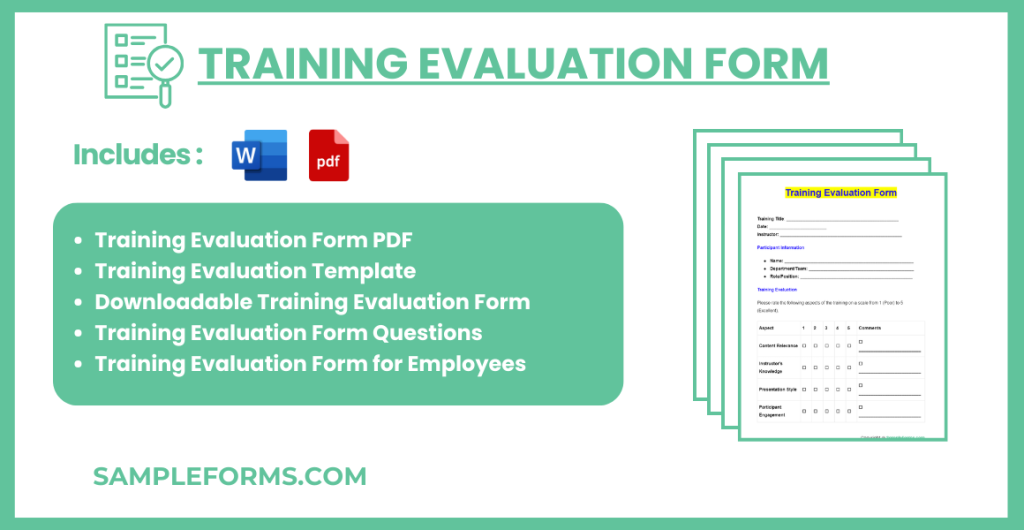
Dive into our extensive guide on Training Evaluation Forms, a pivotal tool for assessing and enhancing employee performance and learning outcomes. These forms are not just documents but pathways to understanding the effectiveness of your training programs. Incorporating elements from both the Training Form and Evaluation Form we will explore how to craft forms that offer insightful feedback and foster an environment of continuous improvement. Whether you’re a seasoned HR professional or new to employee training will equip you with the knowledge to create impactful evaluations.

A Training Evaluation Form is a structured document used by organizations to gather feedback on training sessions from participants. It aims to assess the effectiveness of the training program, measuring how well it met its objectives, the quality of the content, the instructor’s performance, and the overall satisfaction of the attendees. This feedback is crucial for identifying strengths and areas for improvement in training initiatives, ensuring that future sessions are better tailored to meet employees’ needs and enhance their skills effectively.
The best Sample Training Evaluation Form typically includes the following sections:
Title of Training Program: [Training Title]
Date: [Date of Training]
Instructor’s Name: [Instructor’s Name]
Signature of Participant: _______________________
Date: _______________________
This Fillable Form can be customized to fit specific training needs and objectives. It’s designed to provide comprehensive feedback, allowing for continuous improvement in training programs.
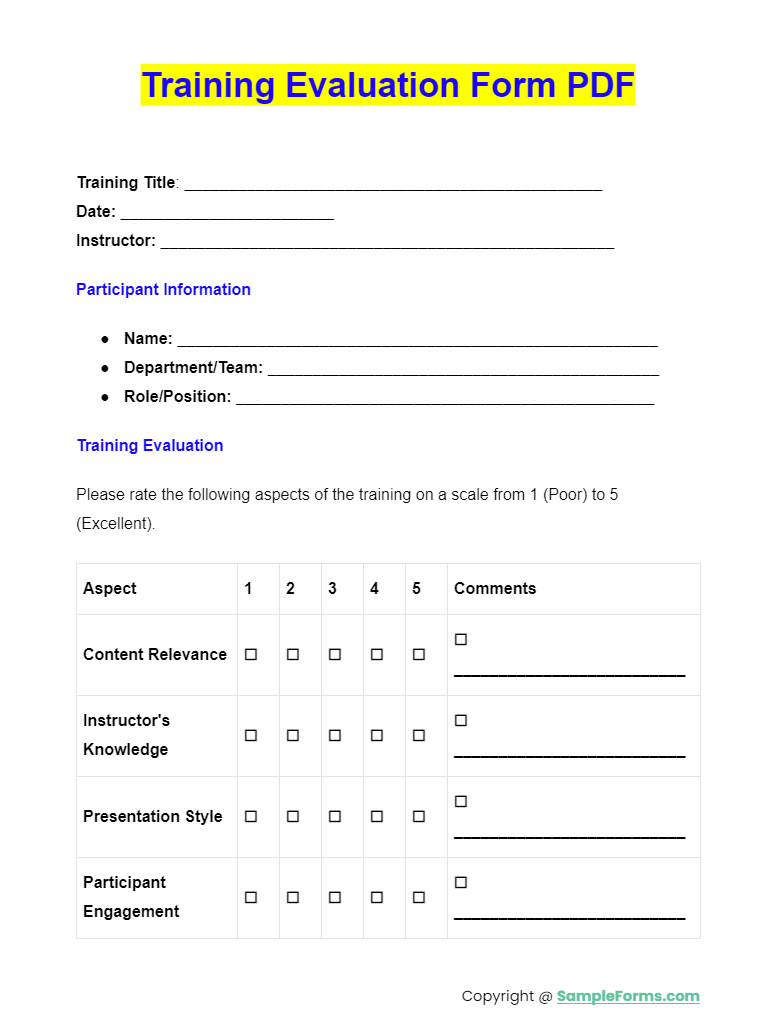
Our Training Evaluation Form PDF integrates the Training Needs Assessment Form and Training Agreement Form, offering a comprehensive tool to assess training effectiveness and align learning objectives with organizational goals. Ideal for streamlined, efficient evaluation processes.
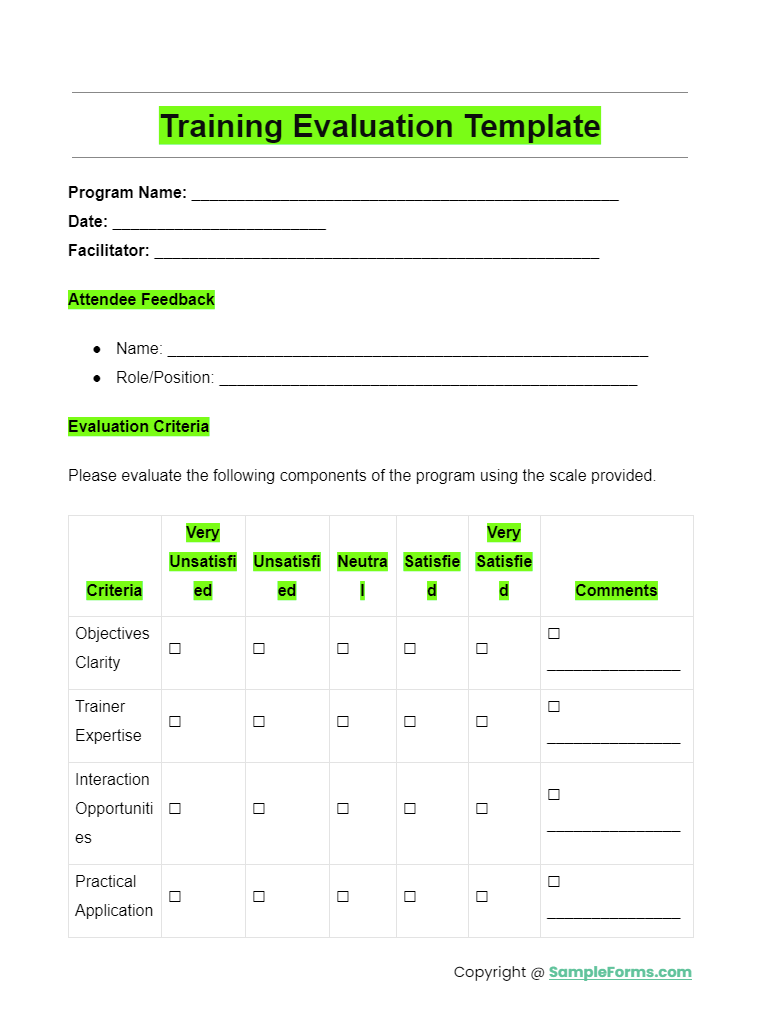
The Training Evaluation Template features the Training Review Form and Pre-Training Assessment Form, facilitating thorough preparation and reflective analysis of training sessions. This template is designed to enhance learning outcomes and training efficiency.
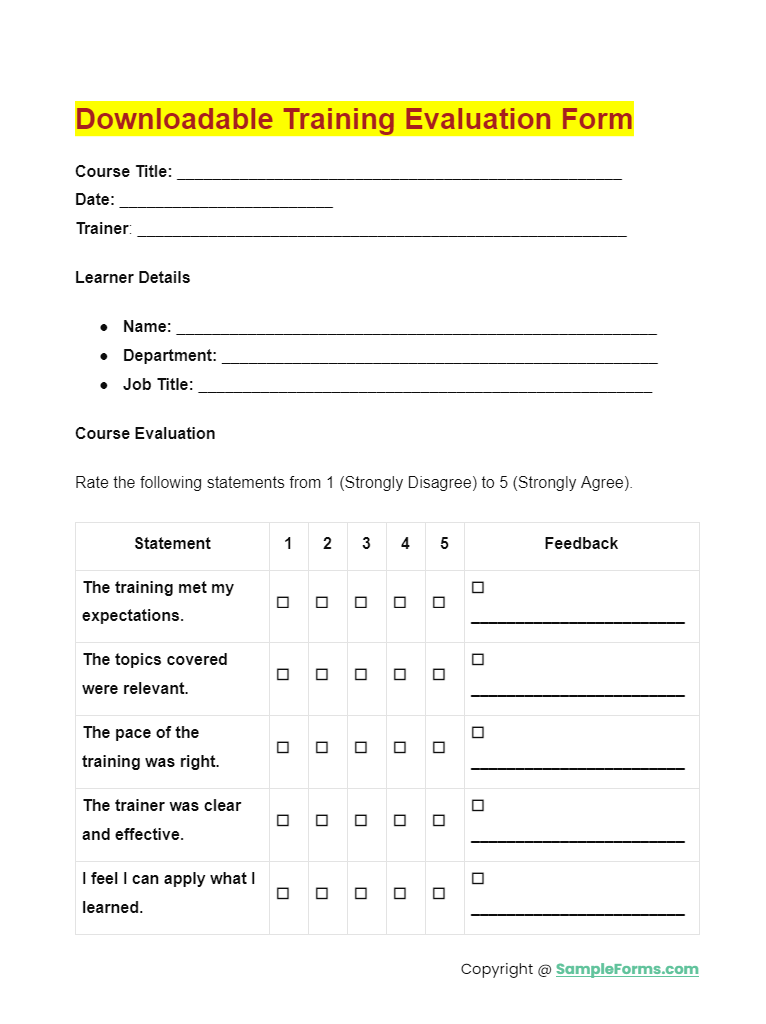
Our Downloadable Training Evaluation Form includes the Training Acknowledgment Form and Training Application Form, making it a versatile resource for confirming participation and tailoring training programs to specific needs and goals.
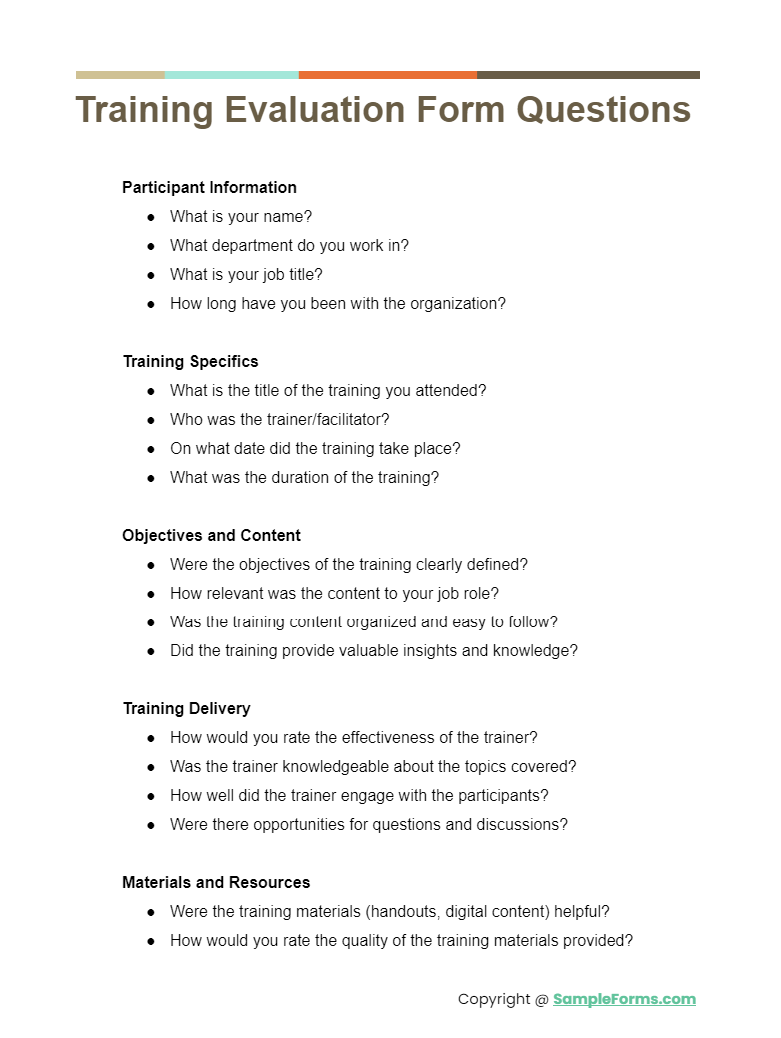
Incorporating Personal Training Assessment Form and Training Assessment Form, our guide on Training Evaluation Form Questions helps in crafting targeted inquiries that gauge the effectiveness of training, ensuring personalized development and measurable outcomes.
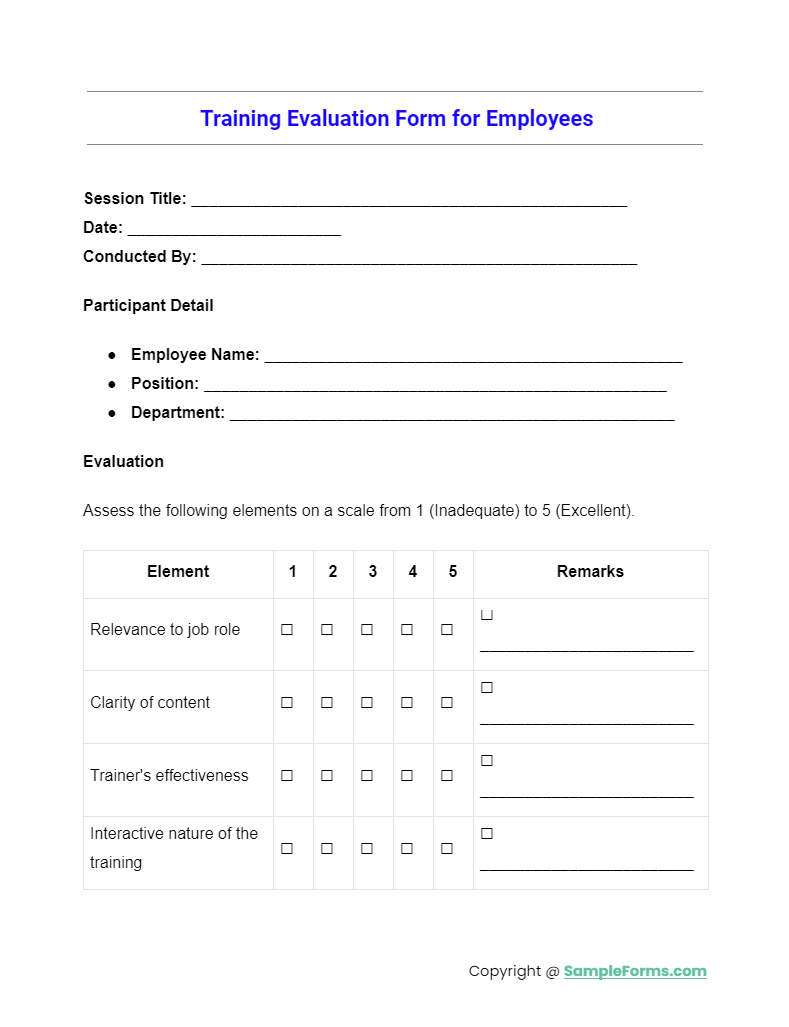
Our Training Evaluation Form for Employees integrates the Employee Evaluation Form and Training Feedback Form, offering a dual approach to assessing training impact on employee performance and gathering actionable insights for future sessions.
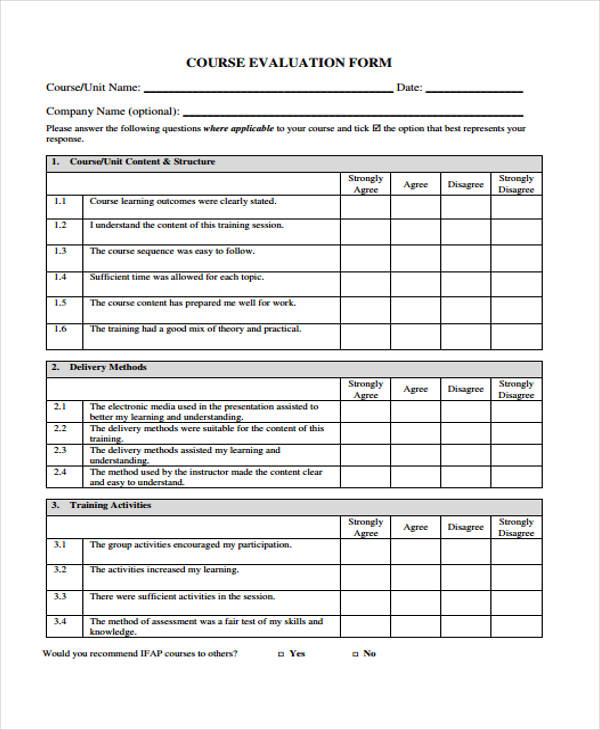
ifap.asn.au
File Format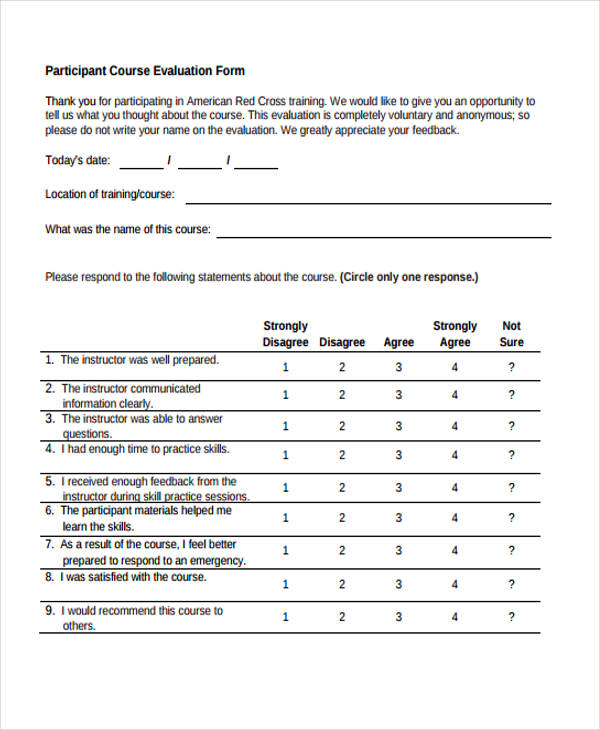
instructorscorner.org
File Format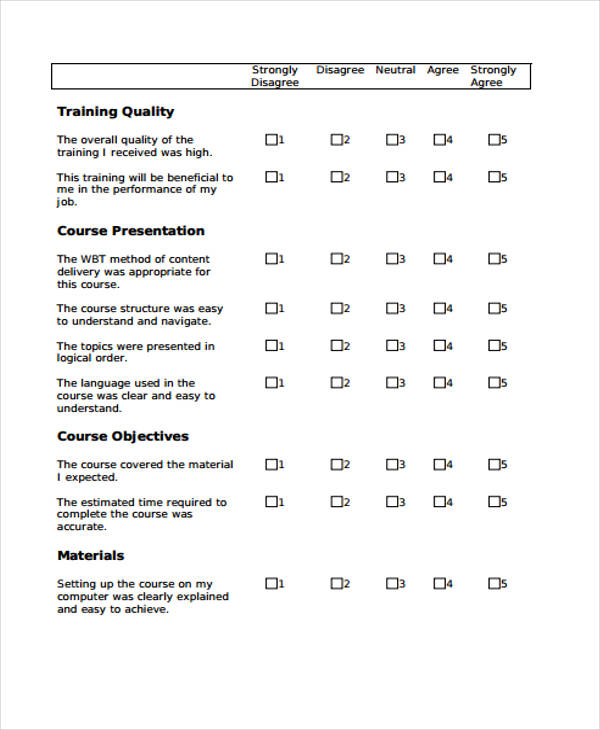
webpages.charter.net
File Format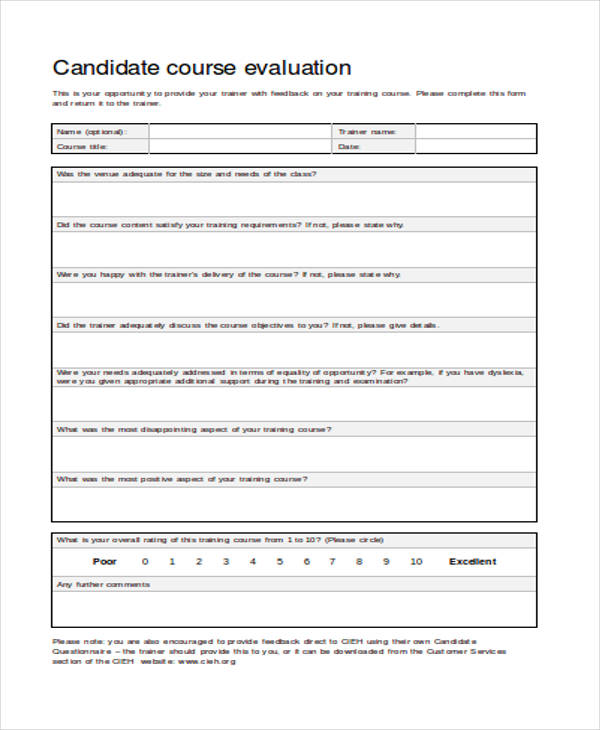
cieh.org
File Format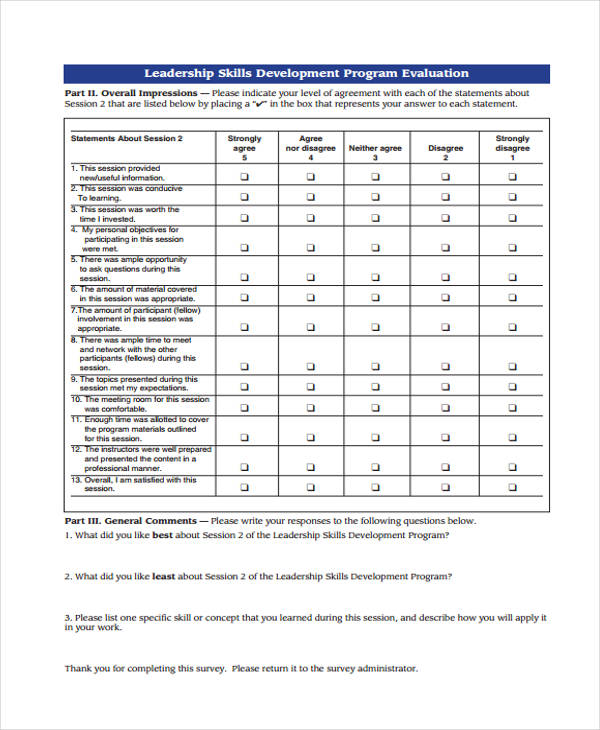
msu.edu
File Format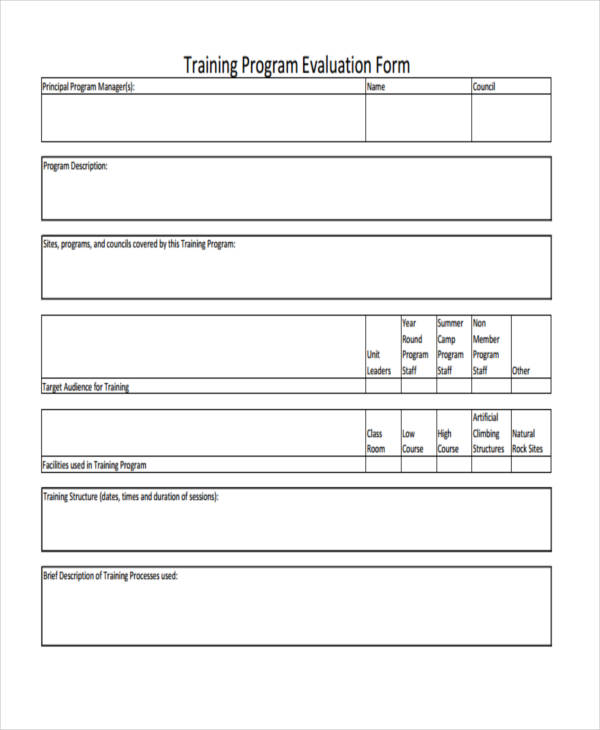
scouting.org
File Format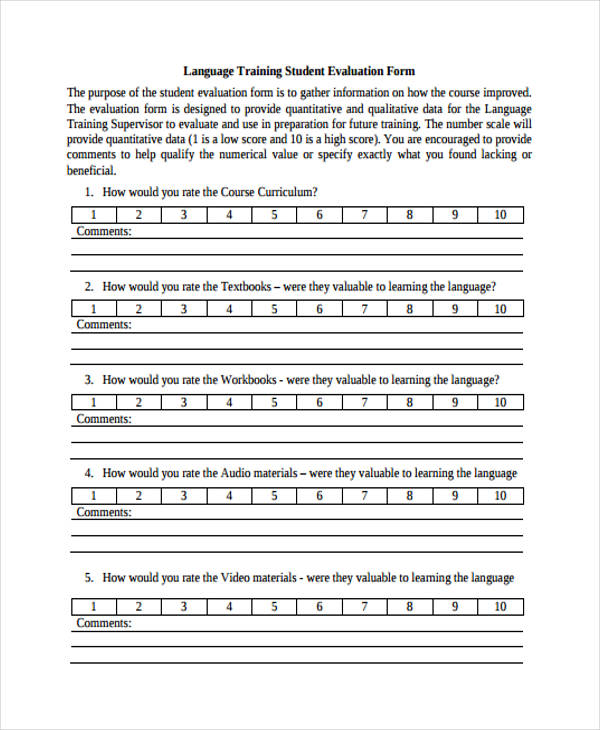
torresco.com
File Format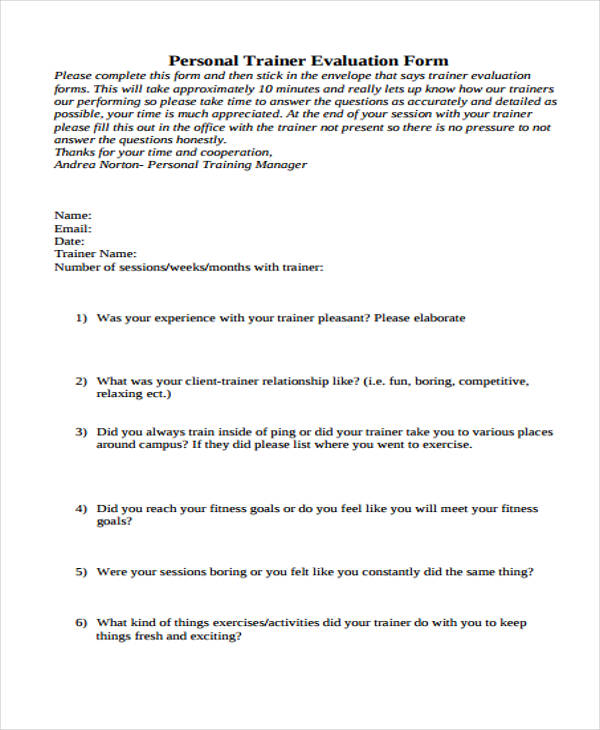
ohio.edu
File Format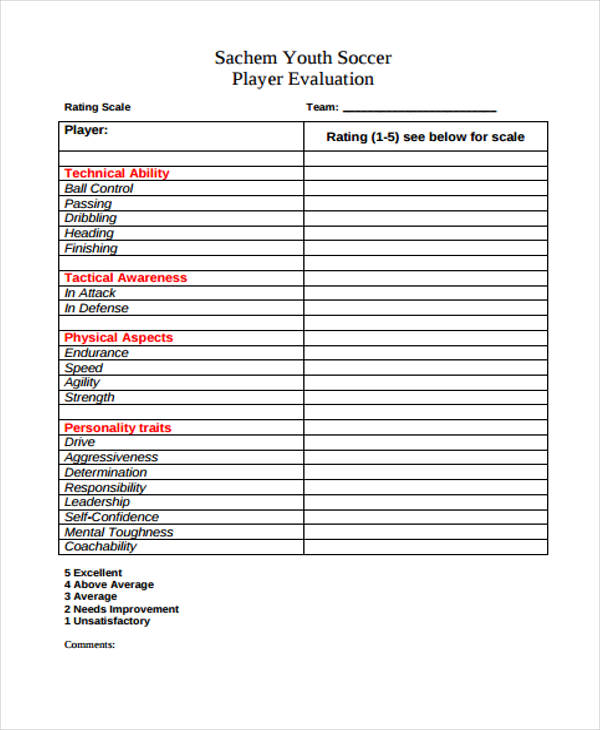
assets.ngin.com
File Format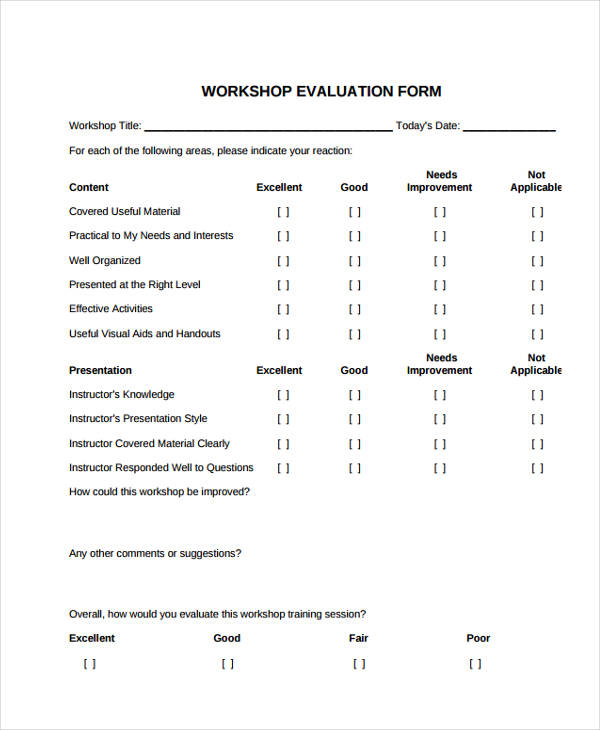 sample training workshop evaluation form" width="390" height="474" />
sample training workshop evaluation form" width="390" height="474" />
eduref.org
File Format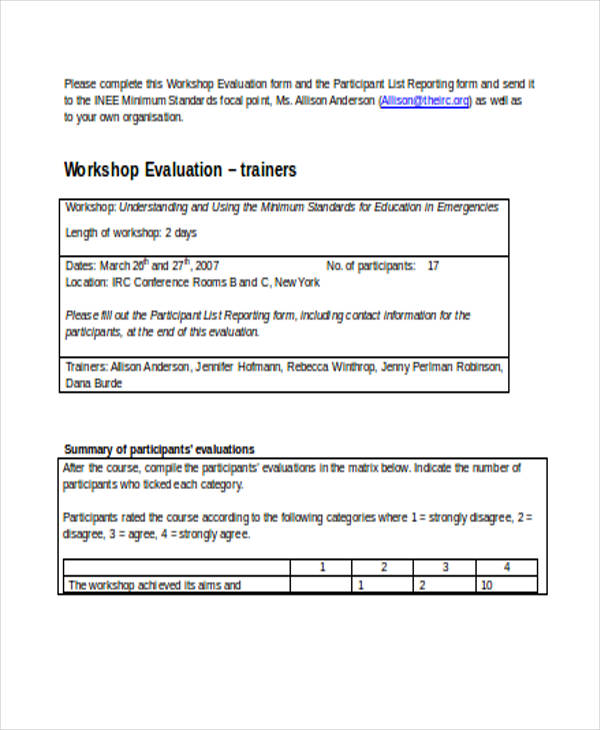
amazonaws.com
File Format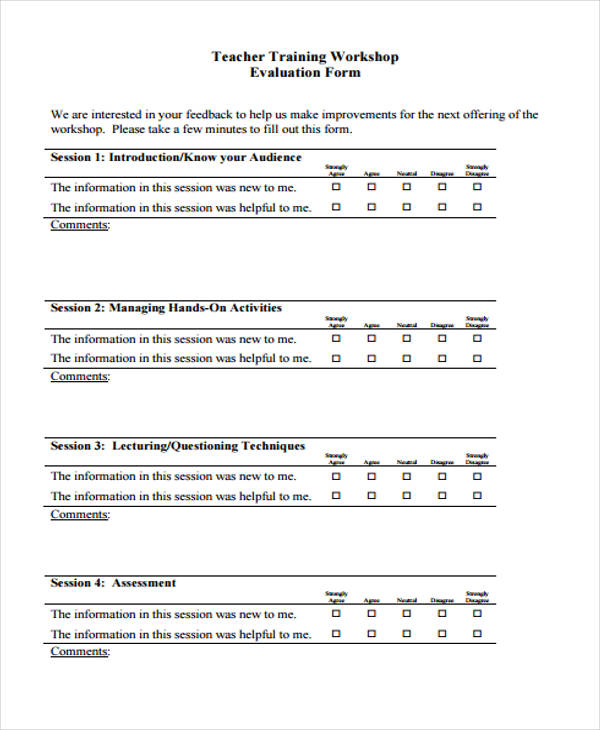
rit.edu
File Format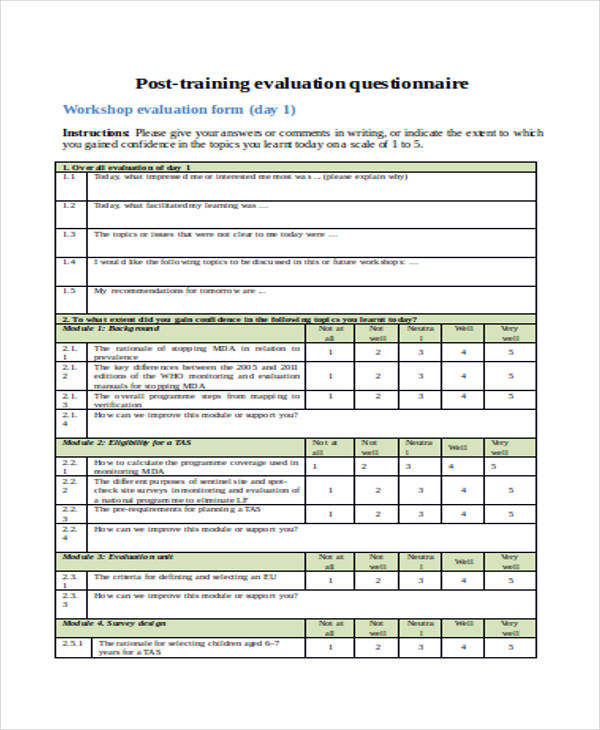
apps.who.int
File Format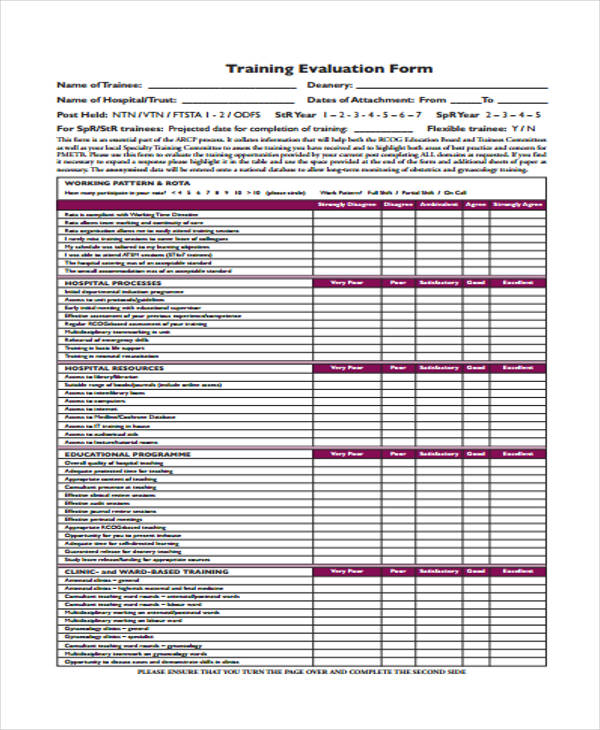
rcog.org.uk
File Format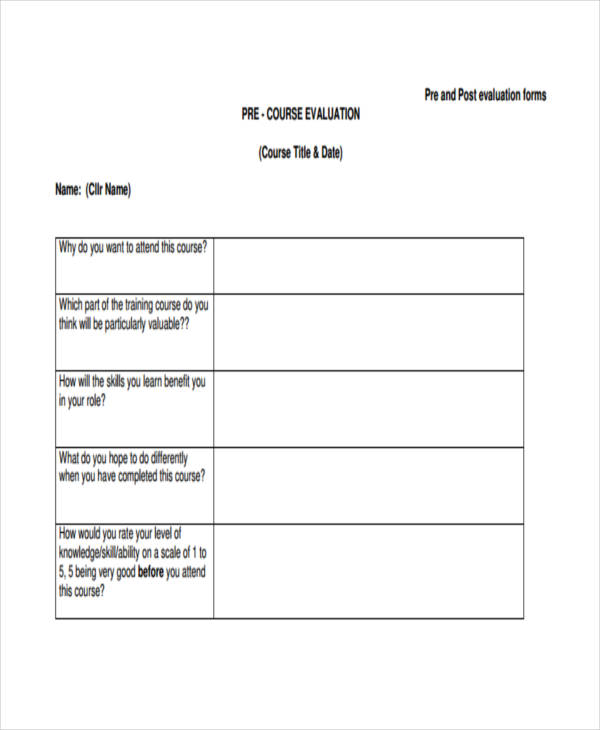
w3.blaby.gov.uk
File Format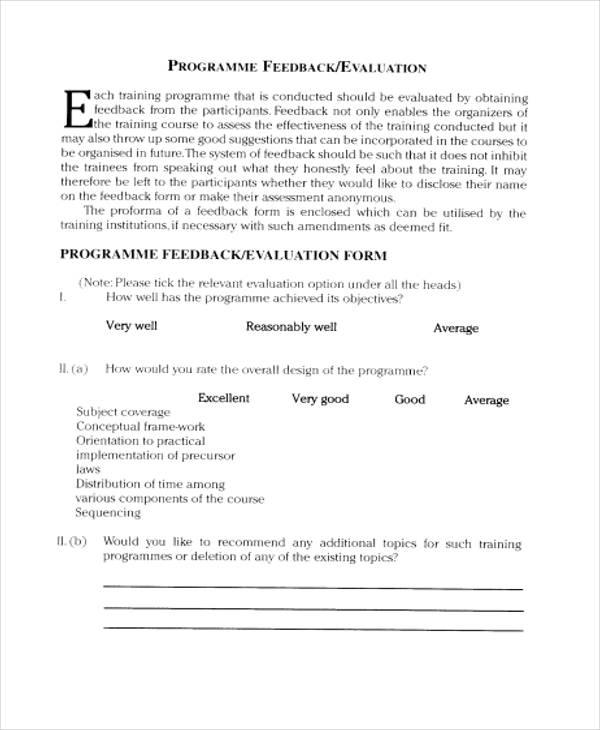
unodc.org
File Format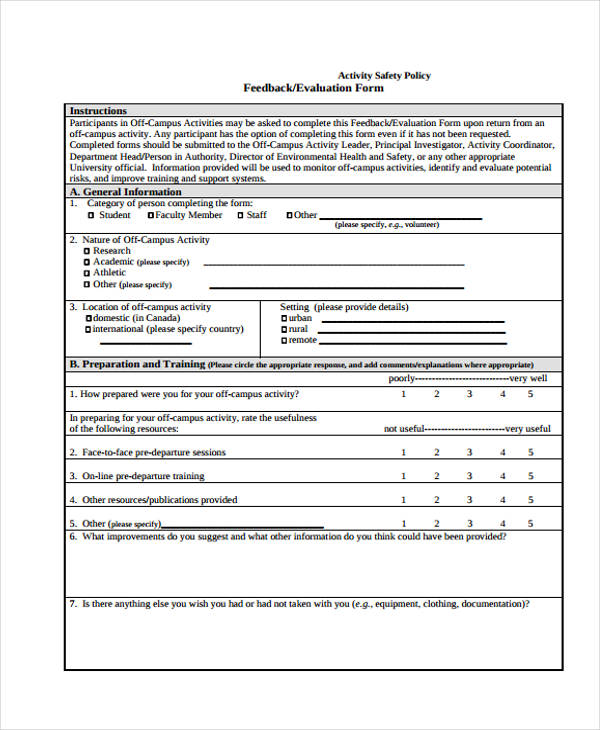
safety.queensu.ca
File Format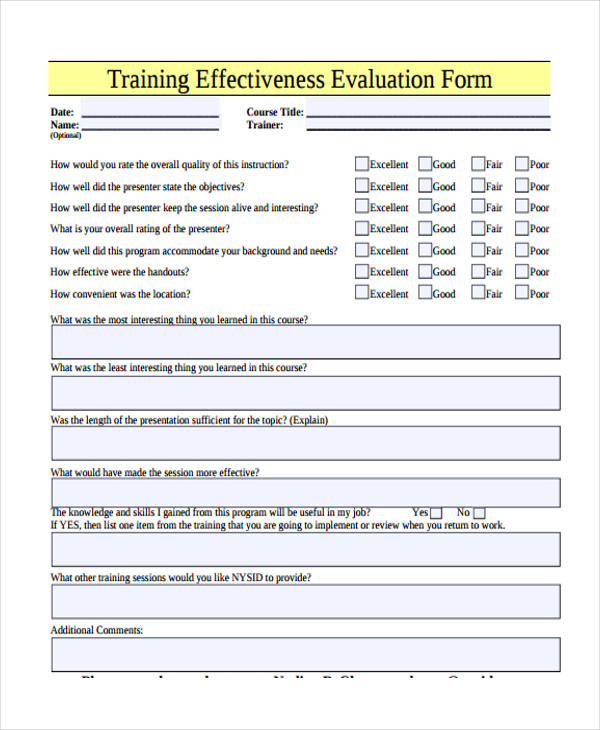
nysid.org
File Format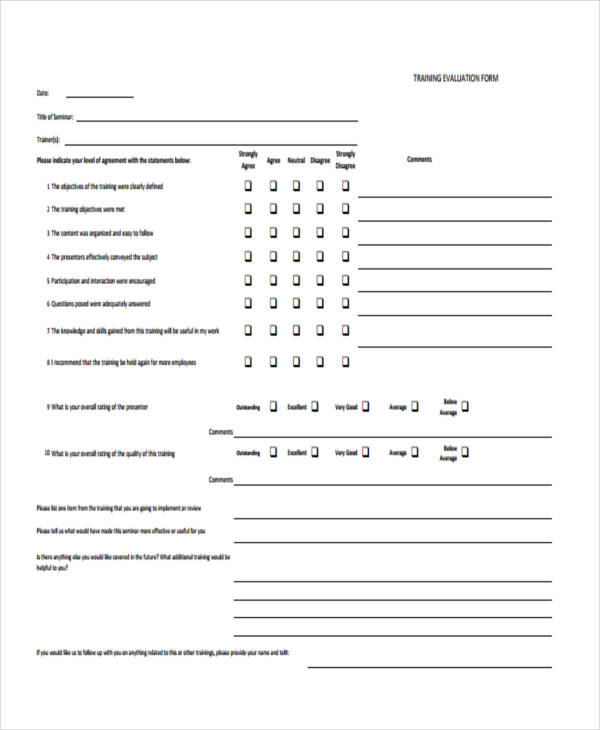
hillsboroughcounty.org
File Format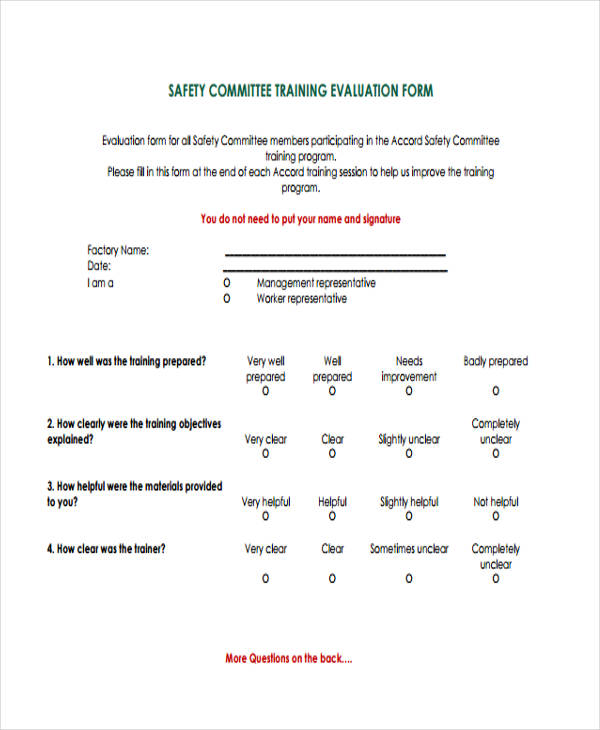
bangladeshaccord.org
File Format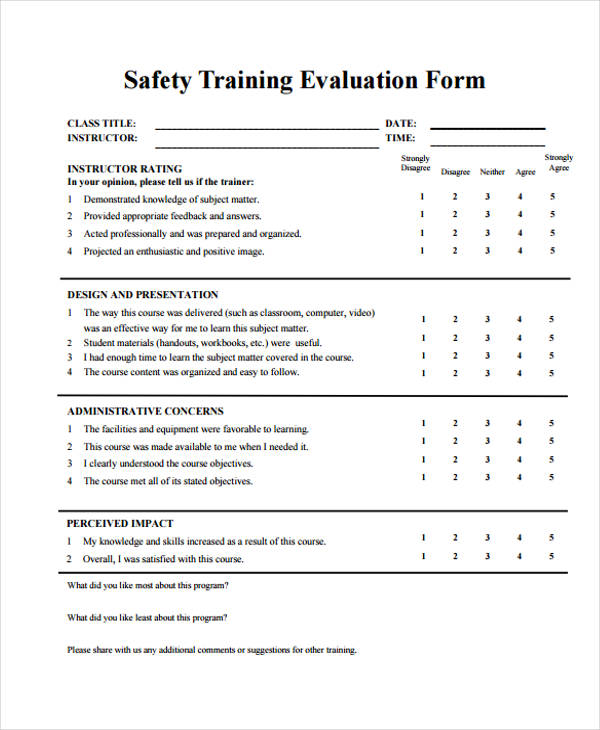
rmehs.fullerton.edu
File Format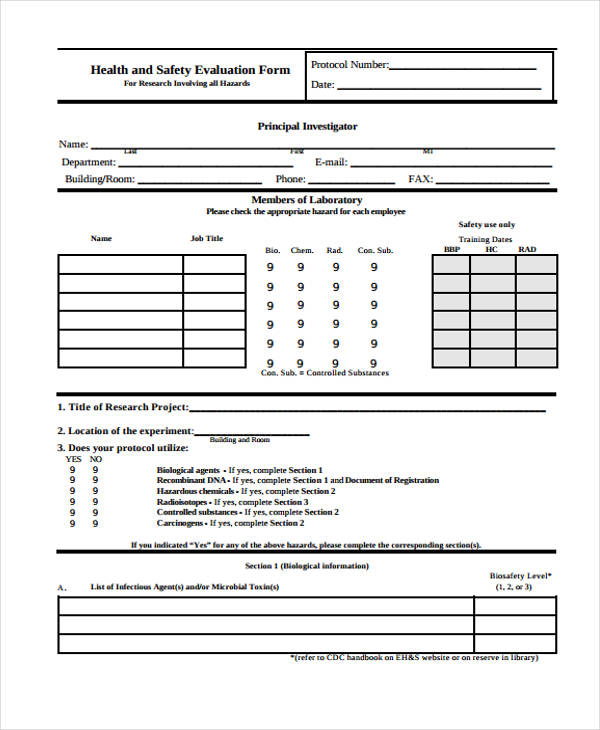
einstein.yu.edu
File Format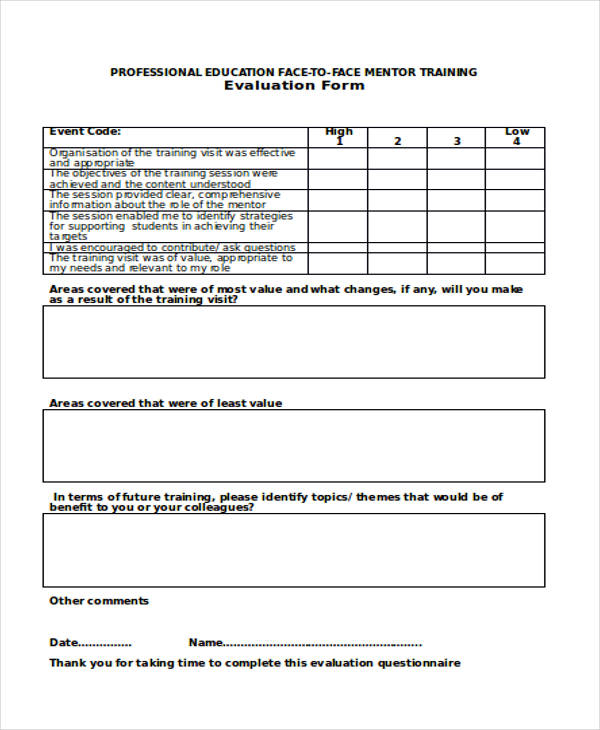
edgehill.ac.uk
File Format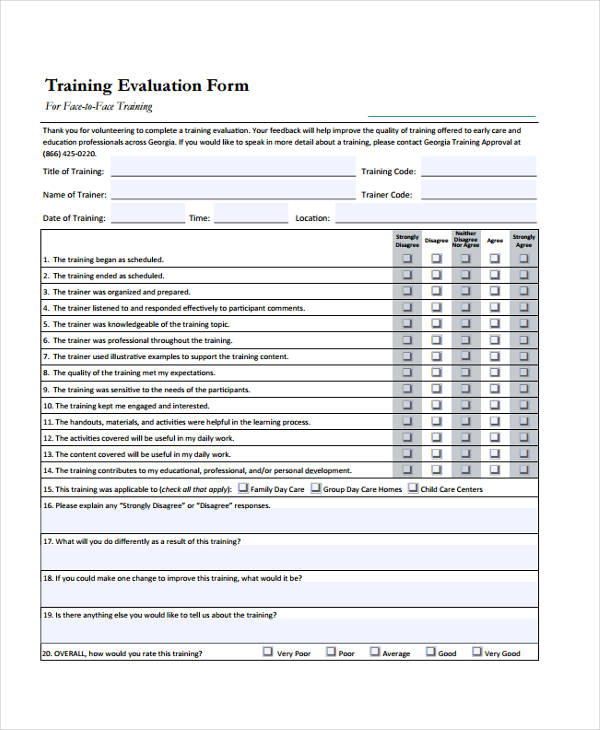
training.decal.ga.gov
File Format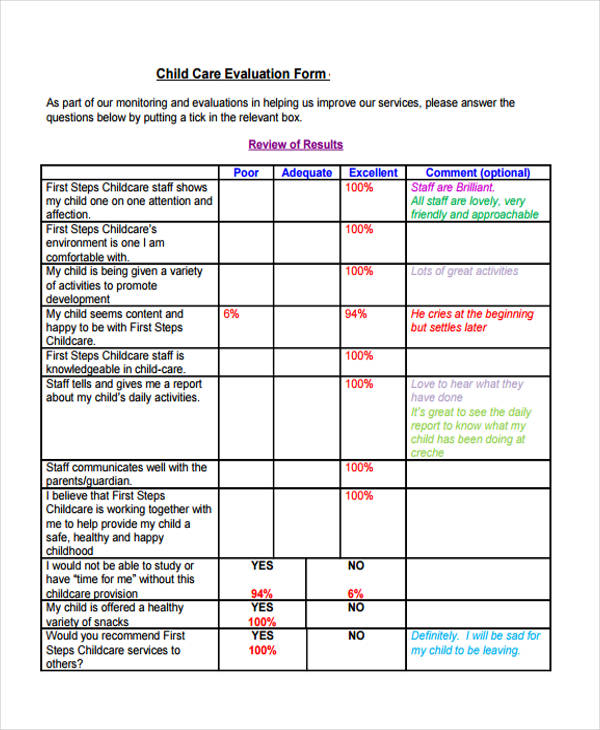
firststepswomenscentre.org
File Format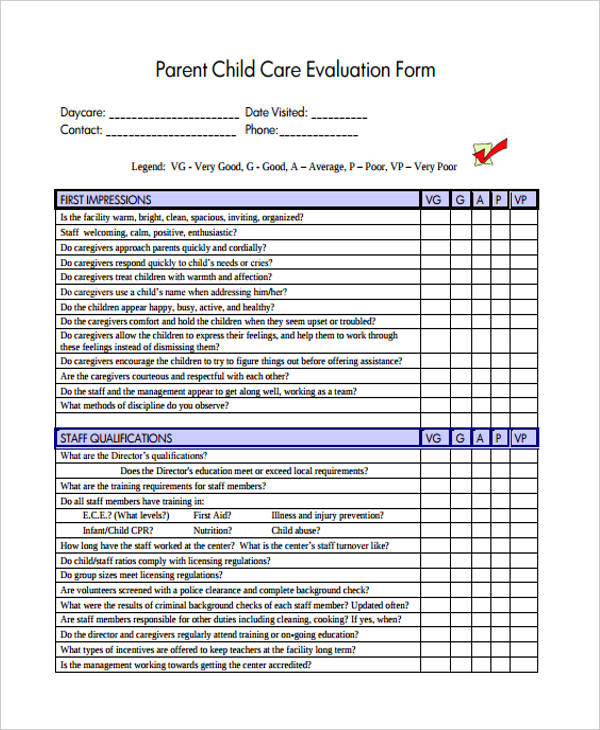
theacademyforactivelearners.com
File Format| Type of Training Evaluation Form | Description |
|---|---|
| Pre-Training Evaluation Form | Used to assess participants’ knowledge and skills before the training, helping tailor content to their needs. |
| Post-Training Evaluation Form | Filled out after the training to evaluate its effectiveness, including content, trainer performance, and participant engagement. |
| 360-Degree Feedback Form | Collects feedback from multiple sources (e.g., peers, subordinates, supervisors) to provide a comprehensive view of the training’s impact. |
| Skills Assessment Form | Measures the improvement in skills and knowledge of participants before and after the training. |
| Training Satisfaction Form | Focuses on participants’ satisfaction with various aspects of the training, such as venue, materials, and presentation. |
| Follow-Up Evaluation Form | Sent weeks or months after training to assess the long-term impact and implementation of skills learned. |
| Instructor Evaluation Form | Specifically targets the performance of the trainer, including teaching style, knowledge, and interaction with participants. |
| Online Training Evaluation Form | Designed for virtual training sessions, evaluating aspects like technology use, online engagement, and content delivery. |
| Training Needs Assessment Form | Used to identify future training needs and areas for development among participants. |
Each type of form serves a unique purpose in evaluating different aspects of training programs, ensuring they meet the intended objectives and contribute to continuous learning and improvement. You may also be interested in our Employee Performance Evaluation Form and Interview Evaluation Form.
If you plan on filling up training evaluation forms, you have to make sure you place in the following information:
If you’re the trainer and you wish to evaluate your participants, then all you’ll require are the participants personal information and the date they started and ended. You also browse our Course Evaluation Form and Volunteer Evaluation Form.
Once all of that information is properly placed, you may then begin rating the different aspects of the training or the performance of the participants. You also browse our Food Sensory Evaluation Form and Presentation Evaluation Form.
The point of making and filling up all of training evaluation forms are so that participants are able to assess how well the any kind of training went. It lets them rate what aspects of the training they found useful, which could use some work, and which one of them they could do without.
For example, you participated in a physical training course. While taking part in it, you’ve felt that the instructor was unclear as to what he was doing or his instructions and that the training has little to no effect on your physical shape. You can then use these forms to provide the proper feedback on how the training went. This can help make sure that problems like these do not happen again and improve future training sessions. You should also take a look at our Speech Evaluation Form and Supplier Evaluation Form.
These aren’t just for the participants to use, they’re also used by the people holding the training. It allows them to see which of the people taking part in their program, sessions or course are having trouble. They can then decide on what to act to ensure that these people develop the skills and abilities that they signed up for the training.
If you need any kind of training evaluation form, then we have them here for you to download and use. You may also see Functional Capacity Evaluation Form and Food Evaluation Form.
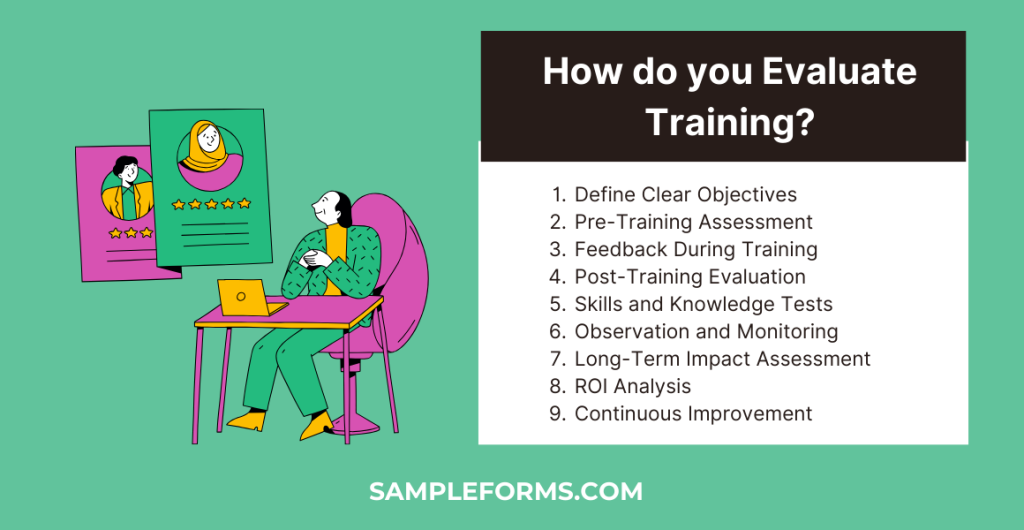
Evaluating training involves several key steps to assess its effectiveness and impact:
Effective training evaluation is a continuous process that helps in refining training strategies, ensuring they meet the evolving needs of the organization and its employees. Our Supplier Evaluation Form and Nurse Evaluation Form is also worth a look at.
The purpose of a training effectiveness evaluation form is to assess the impact and success of a training program. Key objectives include:
Overall, the form is a crucial tool for ensuring that training programs are effective, meet organizational goals, and contribute to the continuous development of employees. You also see Internship Evaluation Form and Debate Evaluation Form.
To write a Training Evaluation Form, include sections like objectives, content relevance, and instructor effectiveness. Incorporate a Call Monitoring Evaluation Form for specific skill assessments, ensuring comprehensive feedback collection.
A good Evaluation Form balances quantitative and qualitative questions, is user-friendly, and provides actionable insights. Including a Peer Evaluation Form can enhance peer-to-peer learning and accountability.
The simplest method to evaluate a training program is through an Employee Self Evaluation Form. This approach encourages self-reflection on learning outcomes and personal development, offering direct insights into training effectiveness.
Training Evaluation should include objectives achievement, participant engagement, and applicability of learned skills. A Training Risk Assessment Form is crucial for identifying potential areas of improvement and ensuring the safety and relevance of the training content.
A Training Evaluation includes feedback on the training’s content, delivery, and outcomes. Incorporating a Training Verification Form ensures that the training’s objectives have been met and verifies participant attendance and engagement.
In conclusion, Training Evaluation Forms are essential tools for optimizing training initiatives, allowing organizations to tailor their programs to better meet the needs of their employees. By utilizing samples, forms, letters, and using a structured Training Request Form, businesses can systematically gather and analyze feedback, leading to more impactful and efficient training programs. Adopt the right format and approach to turn your training evaluations into a roadmap for continuous learning and development.